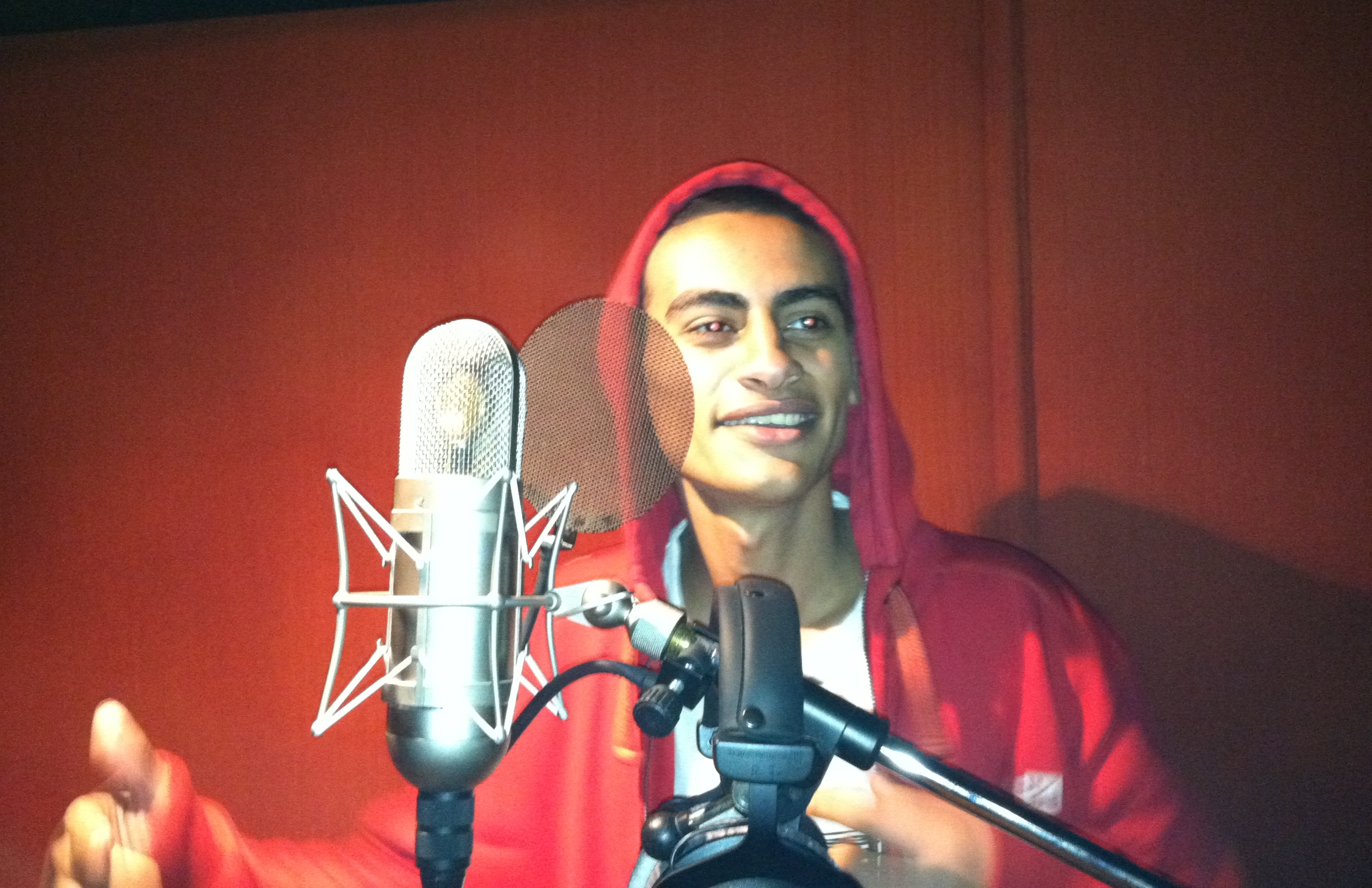
Between the bass, which is cranked so high that your teeth rattle, and the Bob Marley poster that peers knowingly through the haze, the jerry-rigged recording studio in Maadi, an upscale Cairo suburb, might as well be on Sunset Boulevard.
Young rap artists are decked in white Nikes and enough Major League Baseball paraphernalia to open a Lids store. An audio engineer futzes with digitized beats on a gray, refrigerator-size Mac. Even the music blaring through the speakers makes use of a familiar vocabulary, albeit in Arabic. "Resist," "revolt," "rebel" - tired tropes in almost any rap scene.
But this basement hip-hop haven differs from its Western counterparts in one important respect: It's home to a rap outfit, the Arabian Knightz, that just lived through a revolution it had prophesied - and wrote the soundtrack to - more than four years ago.
Conjured uprising
"Since the revolution, you will hear a lot of our music and think we wrote it about what is happening. But we had actually written that four years prior, calling for what happened to happen," said Hesham Abed, 30, who goes by the stage name Sphinx.
Sphinx first linked up with fellow wordsmiths E-Money (Ehab Adel), 31, and Rush (Karim Adel), 26, in 2005 while visiting Egypt from Los Angeles, where he grew up. After a demo that they recorded in Arabic and English hit 100,000 views on the social-networking site MySpace, the trio decided to make a run for it. They have since released two mix tapes and blown up the Internet with a series of music videos that are rife with revolutionary content.
But in the Egypt under the rule of longtime President Hosni Mubarak, communicating such incendiary messages to the masses was risky at best and at worst, impossible.
"The government used to have to read all the lyrics and give you the OK to release the album," said Sphinx, which meant the group's music was never officially sanctioned.
But like many activists who fomented the uprising that brought Mubarak's 30-year reign to an end last February, the Knightz discovered that the vast and unregulated domain of cyberspace gave them more room to maneuver.
Warnings from censors
"Online and for free we were able to cross the line a bit," said Sphinx. "But even then, we were getting warnings here and there" from the Egyptian Board of Censors.
When Egypt erupted with revolutionary fervor in January 2011, the Knightz were in the process of recording the appropriately titled single "Rebel." Realizing that it was now or never, the Knightz released a raw, unmixed version.
By that time, the Mubarak regime had choked off the Internet in an attempt to foil web-savvy protesters. As a result, it took almost a week for "Rebel" to reach the Egyptian public.
But when it did, it went viral.
During the blackout, an anonymous Knightz fan had set "Rebel" and an earlier single, "Prisoner," to a slideshow of some of the young revolution's most iconic images. And when the Internet was restored on Feb. 2, 2011, a full 10 days before Mubarak was forced from office, the homemade music videos spread like wildfire on YouTube, Facebook and other social-networking sites.
"The timing was ridiculous," said Rush, who records all his verses in Arabic. "It was an accident, but it was perfect."
Revolution's guardians
Now, a year after their music helped inspire Egyptians to topple their government, the Knightz see themselves as guardians of the revolution.
"If we see injustice, we speak out about it," said Sphinx, and if they see injustice from the military council, Egypt's interim ruling body, "we speak out about it. Whatever injustices we see and wrongs we see that the people agree with ... we speak out about it."
Following a brutal end to 2011 by the powerful generals that cost the lives of more than 50 protesters, the Knightz find themselves with plenty to speak out about. They are now allowed to play on television and radio.
Lyrics to 'Rebel'
Egypt is revolting against the birds of darkness
The people want the overthrow of the regime
They killed us, slaughtered us, put us behind bars, tortured us, robbed us, scared us, terrorized us and ignored us
The Egyptian people won't die
The people's will will conquer
My country is your country
My money is your money
Enslaving us must end
We heal our pains
Our dreams are peaceful and we should call for them out loud
We call for freedom united with the spirit of Abdel Nasser and Saladin
We're revolting Egyptian, and we're sure of it
Restrained from expressing our feelings, we're soldiers
How could you, oh Egyptian, stand as a barrier between your Egyptian brother and your rights and his?
This is your Egypt and his!
Listen online
To hear "Rebel" and other rap songs by the Arabian Knightz, go to links.sfgate.com/ZLFM.



